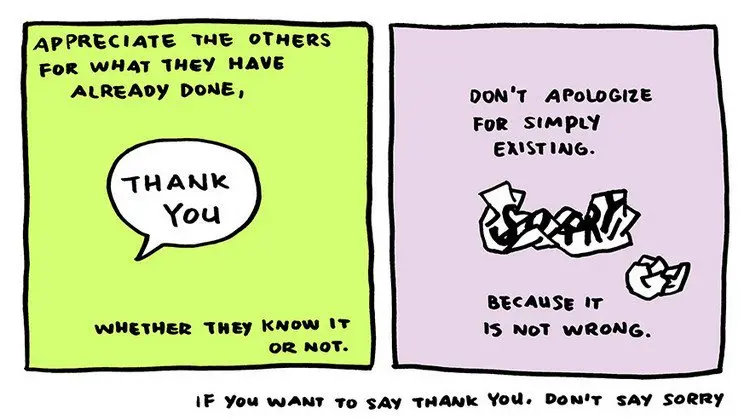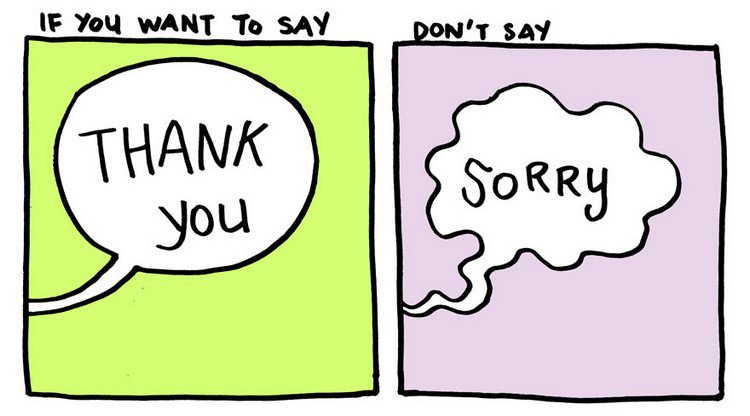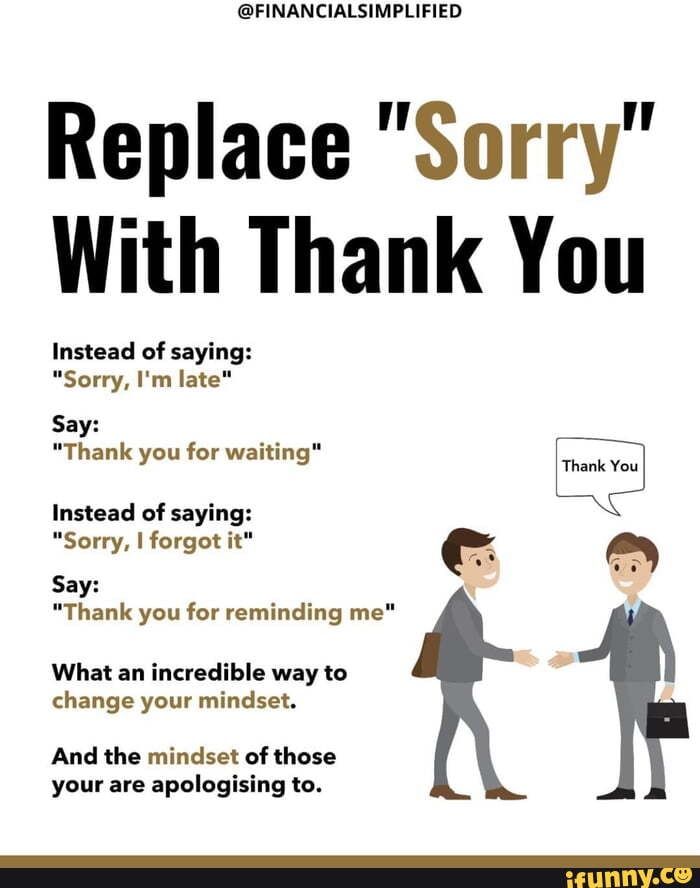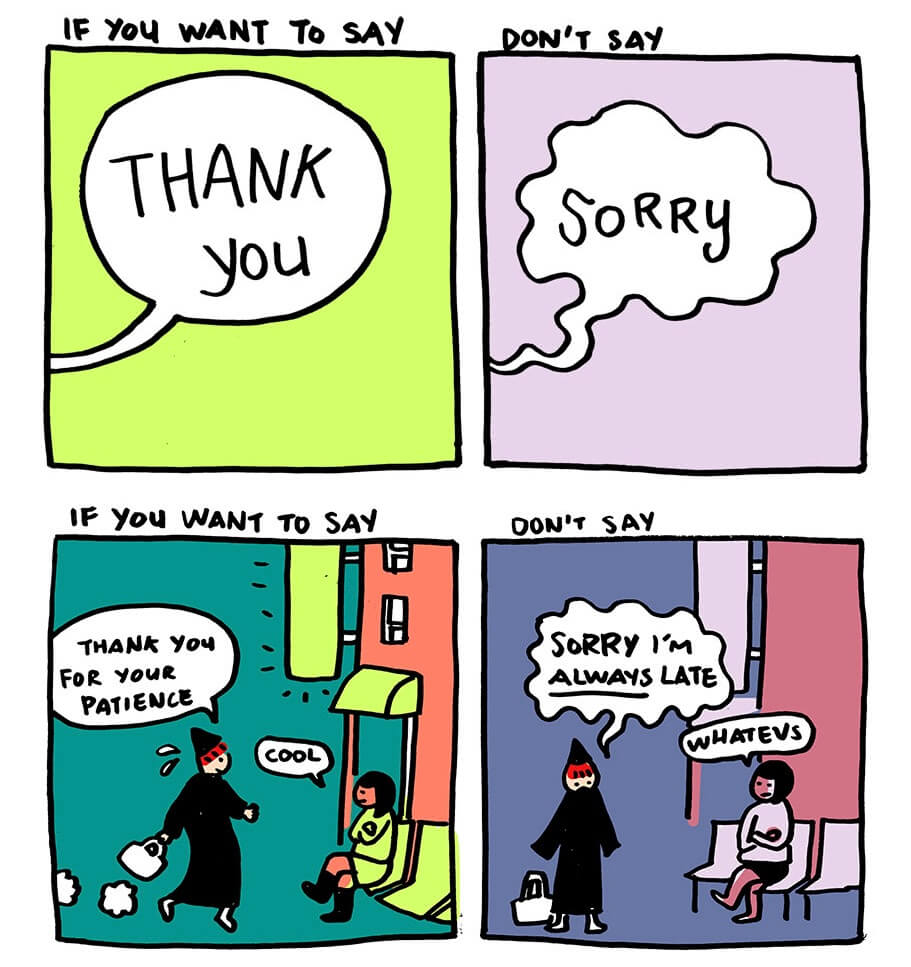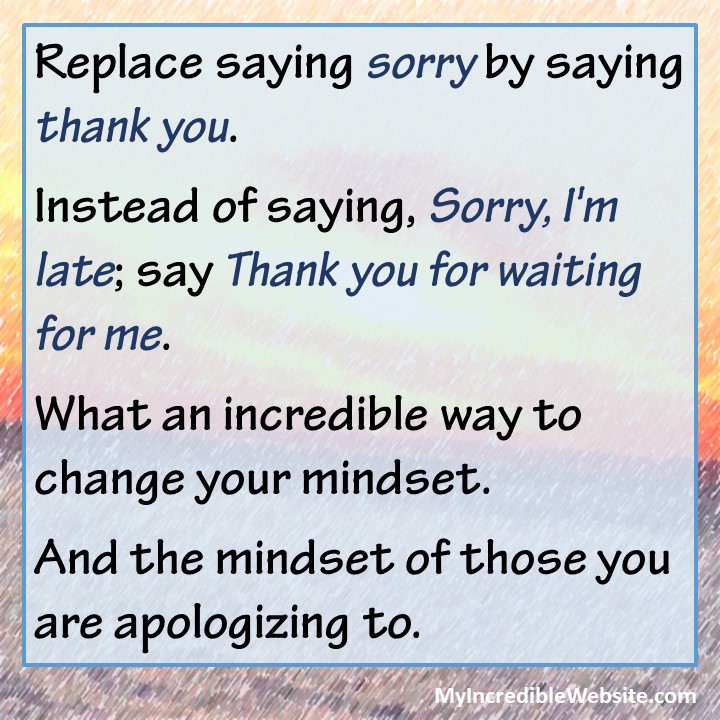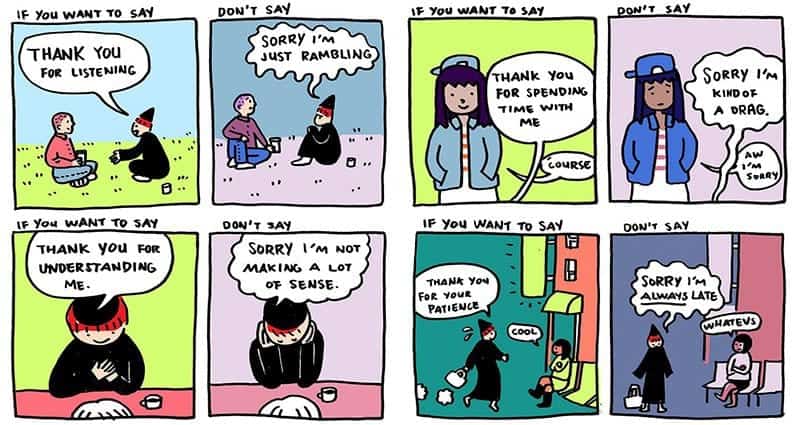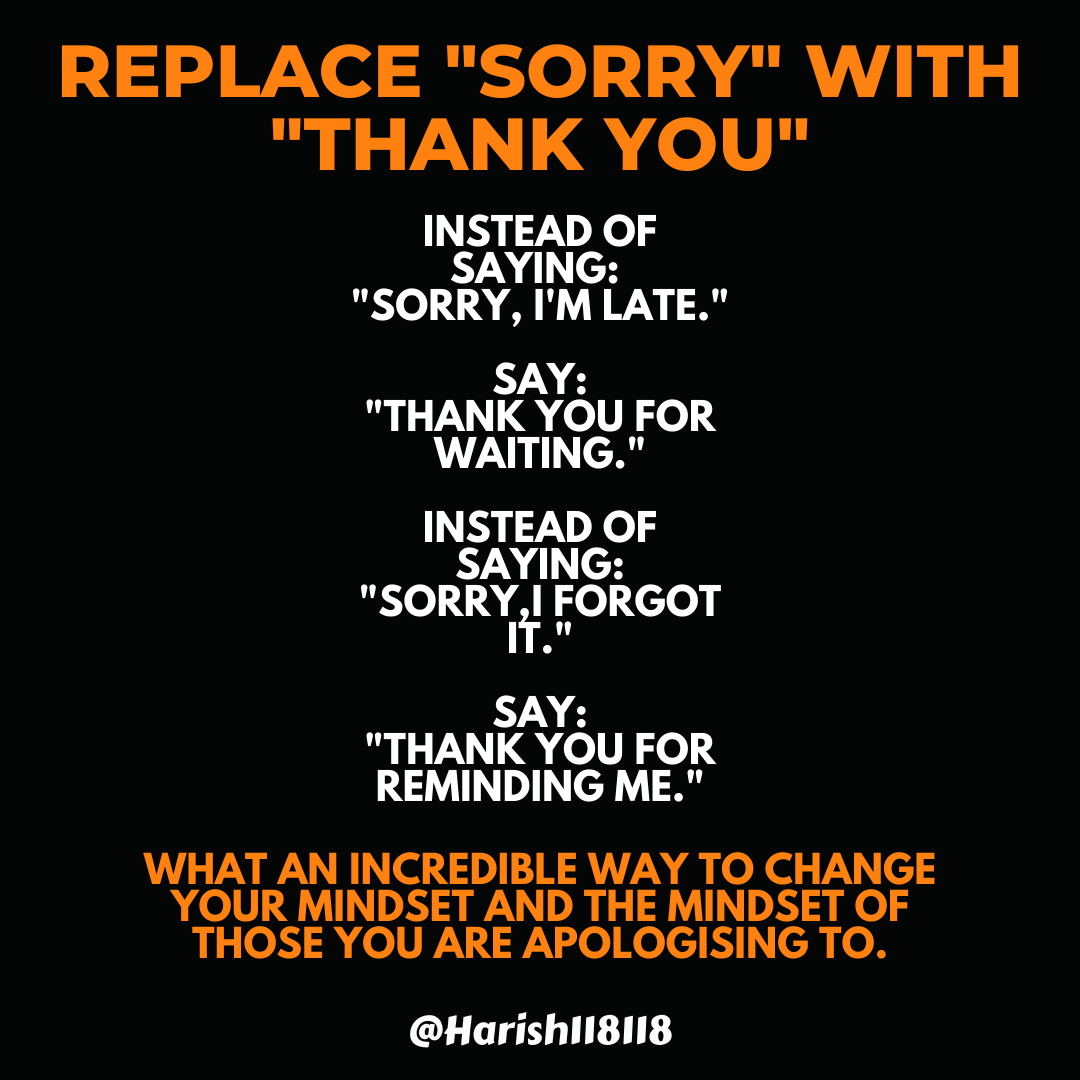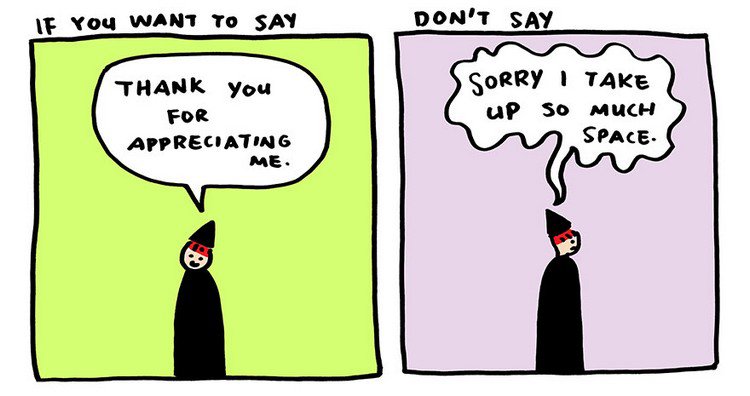Instead Of Apologizing Say Thank You
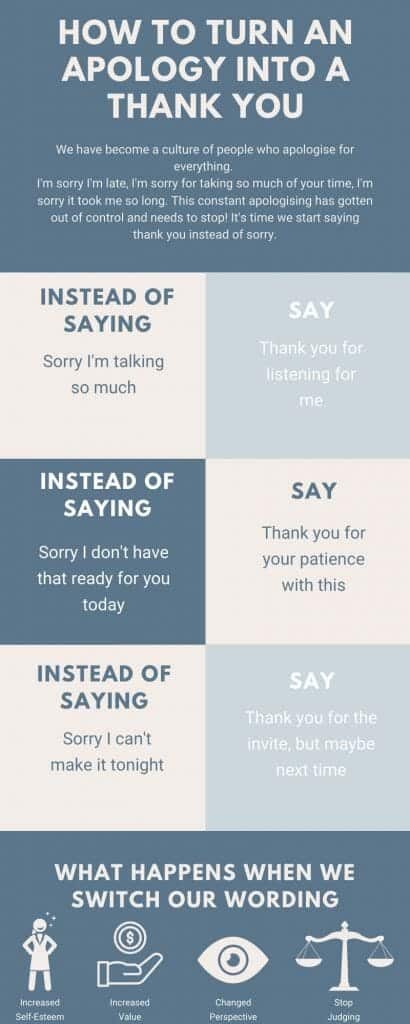
Imagine a crowded farmer's market on a sunny Saturday. A shopper, laden with bags overflowing with fresh produce, accidentally bumps into you, sending a cascade of ripe tomatoes tumbling to the ground. The instinctive reaction is to brace for an apology, a hurried "I'm so sorry!" But instead, the shopper's face crinkles in a warm smile. "Thank you," they say, "for giving me the opportunity to meet you."
This seemingly small shift in language – replacing an apology with a statement of gratitude – holds surprising power. It’s not about shirking responsibility, but rather about reframing interactions to foster positivity and connection. Let’s delve into why this simple change can have a profound impact on our relationships and overall well-being.
The Psychology Behind the Shift
The conventional apology, while necessary in many situations, can sometimes inadvertently center the focus on the mistake. It can also trigger feelings of guilt and defensiveness, both in the person apologizing and the one receiving the apology. By contrast, expressing gratitude, even in the face of an error, redirects the energy toward appreciation and opportunity.
According to research in positive psychology, gratitude is strongly associated with increased happiness, reduced stress, and improved relationships. Dr. Sonja Lyubomirsky, a leading researcher in the field, has demonstrated the profound benefits of regularly practicing gratitude. Shifting our focus to thankfulness, even in challenging situations, can literally rewire our brains to be more optimistic and resilient.
Why "Thank You" Works
So, how can we effectively use "thank you" instead of "sorry?" It's not always a direct replacement, and context matters. The key is to identify the underlying opportunity or positive aspect of the situation.
Consider this scenario: you’re late for a meeting. Instead of launching into a string of apologies, try saying, "Thank you for your patience." This acknowledges the inconvenience you've caused while also expressing appreciation for the other person's understanding. It transforms a potentially negative interaction into a moment of connection.
Another powerful example: you make a mistake on a project at work. Rather than dwelling on the error, you could say to your colleague, "Thank you for pointing that out; it helps me learn and improve." This demonstrates a willingness to take responsibility and a commitment to growth.
Beyond the Individual: A Societal Impact
The ripple effect of this simple change extends beyond individual interactions. In a society often plagued by negativity and division, adopting a more grateful mindset can contribute to a more compassionate and understanding culture.
Imagine customer service interactions where representatives are trained to express gratitude for feedback, even when it’s critical. Imagine political discourse where leaders acknowledge opposing viewpoints with appreciation for the opportunity to engage in dialogue. These small shifts can pave the way for more constructive conversations and stronger communities.
Practical Applications and Cautions
Implementing this shift requires awareness and practice. It's important to be genuine and authentic in your expression of gratitude. A forced or insincere "thank you" can come across as dismissive or even sarcastic.
It's also crucial to acknowledge instances where a sincere apology is genuinely necessary. If you've caused significant harm or distress, a heartfelt apology is paramount. Context is everything.
However, in many everyday situations, replacing the automatic "sorry" with a thoughtful "thank you" can transform a potentially negative encounter into a positive one. It's about recognizing the opportunity for connection and growth, even amidst challenges.
The power of gratitude lies in its ability to reframe our perspective. It allows us to see the good in situations, to appreciate the people around us, and to cultivate a more positive and fulfilling life. Let’s choose gratitude over apology, connection over regret.


